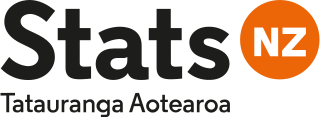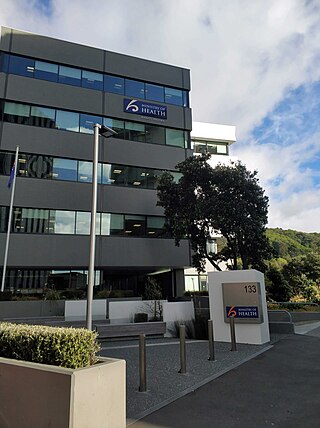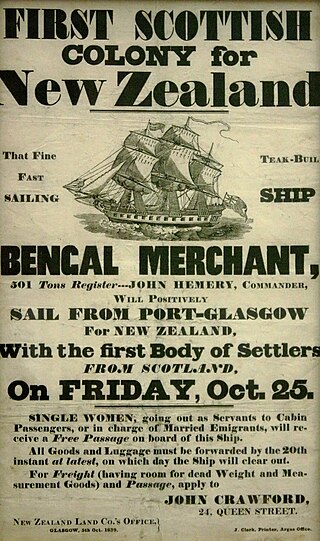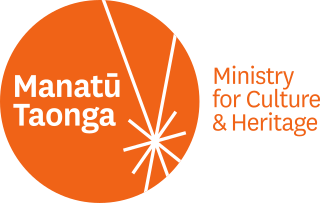Archives New Zealand is New Zealand's national archive and the official guardian of its public archives. As the government's recordkeeping authority, it administers the Public Records Act 2005 and promotes good information management throughout government.
The Department of Internal Affairs (DIA) is the public service department of New Zealand charged with issuing passports; administering applications for citizenship and lottery grants; enforcing censorship and gambling laws; registering births, deaths, marriages and civil unions; supplying support services to ministers; and advising the government on a range of relevant policies and issues.

NZ Post, shortened from New Zealand Post, is a state-owned enterprise responsible for providing postal service in New Zealand.

Spark New Zealand Limited is a New Zealand telecommunications and digital services company providing fixed-line telephone services, mobile phone services, broadband, and digital technology services. Its customers range from consumers to small - medium business, government agencies and large enterprise clients. It was formerly known as Telecom New Zealand until it was rebranded to Spark on 8 August 2014. It has operated as a publicly traded company since 1990. Spark's mobile network reaches 98% of New Zealand, with over 2.5 million mobile connections and 704,000 broadband connections

Statistics New Zealand, branded as Stats NZ, is the public service department of New Zealand charged with the collection of statistics related to the economy, population and society of New Zealand. To this end, Stats NZ produces censuses and surveys.
The Reserve Bank of New Zealand (RBNZ) is the central bank of New Zealand. It was established in 1934 and is currently constituted under the Reserve Bank of New Zealand Act 2021. The governor of the Reserve Bank, currently Adrian Orr, is responsible for New Zealand's currency and operating monetary policy.

The Ministry of Health is the public service department of New Zealand responsible for healthcare in New Zealand. It came into existence in its current form in 1993.
Te Manatū WakaMinistry of Transport is the public service department of New Zealand charged with advising the New Zealand Government on transport policy. The Ministry works closely with other government transport partners, including the New Zealand Transport Agency (NZTA) to advance their strategic objectives.

Chinese New Zealanders or Sino-New Zealanders are New Zealanders of Chinese ancestry. The largest subset of Asian New Zealanders, many of the Chinese immigrants came from Mainland China, Hong Kong, Taiwan, or other countries that have large populations of Chinese diaspora. Today's Chinese New Zealand group is also composed of diasporic communities from Indonesia, Malaysia, Cambodia, Vietnam and Singapore. As of 2018, Chinese New Zealanders account for 4.9% of the population of New Zealand, and are the largest Asian ethnic group in New Zealand, accounting for 36.3% of Asian New Zealanders.

Papanui High School (PHS) is a co-educational state secondary school located in Papanui, Christchurch, New Zealand. It is situated on Langdons Road, in a rapidly growing commercial area. It was formerly bounded by Northlands Mall, and Firestone.
The Department of the Prime Minister and Cabinet (DPMC) is the central public service department of New Zealand charged with providing support and advice to the governor-general, the prime minister and members of the Cabinet of New Zealand. The department is also charged with centrally leading New Zealand's "national security planning, which includes civil defence."

Migration to New Zealand began only very recently in human history, with Polynesian settlement in New Zealand, previously uninhabited, about 1250 CE to 1280 CE. European migration provided a major influx, especially following the signing of the Treaty of Waitangi in 1840. Subsequent immigrants have come chiefly from the British Isles, but also from continental Europe, the Pacific, the Americas and Asia.
The electricity sector in New Zealand uses mainly renewable energy, such as hydropower, geothermal power and increasingly wind energy. As of 2021, the country generated 81.2% of its electricity from renewable sources. The strategy of electrification is being pursued to enhance the penetration of renewable energy sources and to reduce greenhouse gas (GHG) emissions across all sectors of the economy. In 2021, electricity consumption reached 40 terawatt-hours (TW⋅h), representing a 0.2% increase compared to the consumption levels in 2010.

The Ministry for Culture and Heritage is the department of the New Zealand Government responsible for supporting the arts, culture, built heritage, sport and recreation, and broadcasting sectors in New Zealand and advising government on such.
Powershop is an online electricity retailer founded in New Zealand, and also available in Australia. In New Zealand, Powershop is a subsidiary of Meridian Energy, 51% of which is owned by the New Zealand Government. The retailer operates through an online platform offering pre-pay and post-pay options.

The Ministry of Business, Innovation and Employment is the public service department of New Zealand charged with "delivering policy, services, advice and regulation" which contribute to New Zealand's economic productivity and business growth.
Chorus is a provider of telecommunications infrastructure throughout New Zealand. It is listed on the NZX stock exchange and is in the NZX 50 Index. The company owns the majority of telephone lines and exchange equipment in New Zealand; and was responsible for building approximately 70% of the country's fibre-optic UFB network, receiving a government subsidy of $929 million to do so.
WorkSafe is New Zealand's primary workplace health and safety regulator.
Gender equality is the notion that each gender should receive equal treatment in all aspects of life, and that one should not be discriminated based on their sex. Gender equality is a human right, which is recognised under the United Nations Universal Declaration of Human Rights.

Housing in New Zealand was traditionally based on the quarter-acre block, detached suburban home, but many historical exceptions and alternative modern trends exist. New Zealand has largely followed international designs. From the time of organised European colonisation in the mid-19th century there has been a general chronological development in the types of homes built in New Zealand, and examples of each generation are still commonly occupied.










